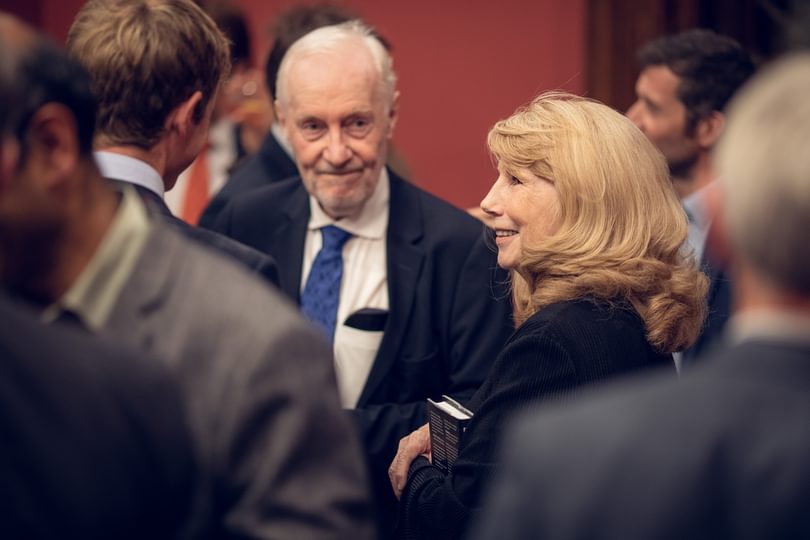
Members of the Oxford Martin School’s Advisory Council gathered for their annual meeting on 5th November to discuss research highlights from the past year and consider the future strategic direction of the school.
After a welcome by the University of Oxford’s Vice Chancellor, Professor Louise Richardson, and an update on developments over his first year in post by the School’s Director, Professor Sir Charles Godfray, the council members were presented with research and impact updates from directors of a number of the School’s programmes.
In a timely presentation, only the day before the US mid-term elections, which his team are studying in detail, Professor Philip Howard spoke about the Oxford Martin Programme on Misinformation, Science and Media. He explained how, working from election cycle to election cycle, his team are investigating how political actors are using ‘junk science’ to manipulate public opinion, presenting deep threats to democratic institutions and public trust.
The council members were impressed by the programme’s success in bringing together policymakers and leaders of social media businesses to discuss how to develop practical solutions to this issue without over-regulating.
Also discussing direct actions being taken by Oxford Martin programmes to drive change at the root of global issues was Professor E.J. Milner-Gulland. She outlined the school’s work on the Illegal Wildlife Trade. The programme is utilising established theory of change strategies to deliver real-world impacts focussing on plugging the gaps in current research, being a ‘neutral’ networker of NGOs and working on-the-ground to combat the demand for wildlife products.
The council also heard from Professor Stefan Dercon about the Programme on African Governance’s work on understanding how to bring about inclusive growth in sub-Saharan Africa, home to the majority of the world’s most impoverished populations. They were then presented with recent research from the Programme on Technology and Employment, on the impact of Uber’s ‘gig economy’ model on wellbeing and income.
Sam Bickersteth, Executive Director of the Rockefeller Foundation Economic Council on Planetary Health at the Oxford Martin School, gave an overview of the council’s work to date and briefed members on outcomes expected during 2019.
Finally, the Council heard from Professor Angela McLean about the School’s efforts to support policymakers, particularly the in the UK, in making informed, evidence-based decisions through its Restatements series. As a tool for policymakers the restatements summarise the current science evidence base on a particular issue in a comprehensive, fully-referenced and policy-neutral way. The documents had been very well received by ministers and their scientific advisors, she said, and future additions to the series were currently under consideration, with significant engagement on upcoming issues to address.
The meeting concluded with a lively drinks reception, with Professor Louise Richardson restating her thanks to the Advisory Council for their valuable contributions to guiding the work of the School and the development of its vision.